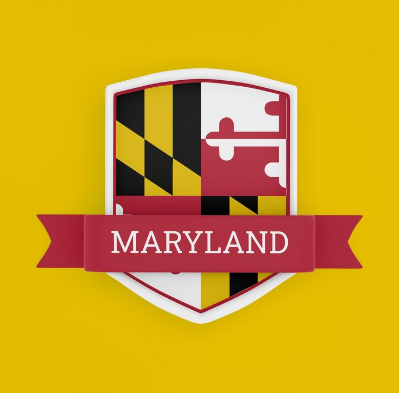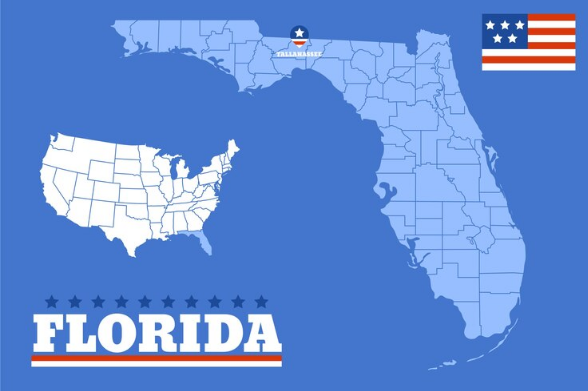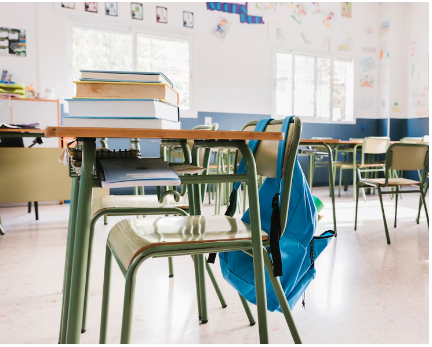Dyslexia Schools In New Hampshire

When evaluating dyslexia-friendly schools in New Hampshire, it's essential to apply a rigorous, multi-faceted approach to ensure that these institutions truly support students with dyslexia. Schools should be assessed based on their ability to offer specialized programs, trained staff, evidence-based teaching methods, and access to assistive technology.
In New Hampshire, schools that are considered dyslexia-friendly often excel in these areas, providing a supportive environment that fosters academic and personal growth for students with dyslexia.
By collaborating with experts, collecting data through surveys and observations, and validating findings with parents and educators, we can confidently recommend schools that genuinely meet the needs of dyslexic students.
Continuous monitoring and feedback ensure that these recommendations remain relevant and effective, offering New Hampshire families reliable guidance in choosing the right educational setting for their children.
This article will guide you through some of the top dyslexia-friendly schools in the area, providing you with the information you need to make an informed decision for your child's education.
The schools recommended have been carefully evaluated based on their specialized programs, the dedication of their staff, and their use of proven teaching methods.
We’ve spoken with parents, educators, and experts, and seen firsthand what works. The schools that made the list have shown a real commitment to helping students with dyslexia succeed, both academically and personally.
We want to make sure you have the information you need to choose a school where your child will feel supported, understood, and encouraged to reach their full potential.
What is the Percentage of Dyslexia Amongst Students In New Hampshire?
No publicly available data breaks down dyslexia prevalence specifically among NH students.
The NH Department of Education requires universal screening (using tools like DIBELS or PALS) by grade 1, per HB 1644 (pmc.ncbi.nlm.nih.gov, education.nh.gov, improvingliteracy.org).
This means NH schools are identifying reading difficulties early, but no aggregated statistics (like “X % of students identified”) are currently published at the state level.
NH’s International Dyslexia Association chapter actively supports advocacy and training (dyslexiaida-nnea.org), but again does not provide statewide prevalence figures.
Typical estimates worldwide place dyslexia in about 3–7% of the population, based on more stringent diagnostic cut-offs (pmc.ncbi.nlm.nih.gov).
If broader criteria are used (i.e. reading performance below the 25th percentile), prevalence estimates can rise to around 15–17% (pmc.ncbi.nlm.nih.gov).
What We Can Say With Confidence
- Nationally, dyslexia affects approximately 5–17%, depending on the criteria used, with up to 20% of school-aged children exhibiting reading disabilities .
- New Hampshire mandates universal early screening, signaling awareness and early intervention—but state-level prevalence rates are not currently published .
- To get a clearer NH-specific percentage, one could request data directly from the NH DOE or regional school districts that deploy these screeners.
Source (improvingliteracy.org)
Recommendation
Contact the NH Department of Education—they should hold aggregate data collected through mandated screening.
Alternatively, explore academic studies or district-level reports that may report local prevalence figures based on their screening data.
Legislation and Policies for Dyslexia In New Hampshire
1. RSA 200:58–59 – Dyslexia Screening & Intervention Law (2016, amended 2023)
What it mandates: Public schools must screen all students (K–2/3) using DIBELS or equivalent, soon after entry and at least twice annually to identify risk factors for dyslexia and related disorders, with required parent notification and interventions by Jan 1, 2018 (law.justia.com).
Key provisions include:
Secondary assessment within 30 days if screening flags concerns, with interventions starting within 21 days and possible special education referral (legiscan.com).
Parents can submit independent evaluations, at their own cost, for consideration (legiscan.com).
Parents must be informed, and individualized written support plans developed (legiscan.com).
Credibility: Codified in state statutes (RSA 200:58–59) and publicly available in the NH Department of Education’s guidance .
2. HB 1644 (2016) – Establishing a State Dyslexia Specialist
Requirements:
Adds a formal definition of “dyslexia” aligned with the International Dyslexia Association (IDA) definition (neurobiological reading disorder affecting decoding and comprehension) (legiscan.com).
Requires screening of all students using DIBELS or equivalent upon K–1 entry and periodically through grades (improvingliteracy.org).
Mandates explicit, multisensory, evidence-based interventions within an MTSS/RTI framework when dyslexia risk is identified (improvingliteracy.org).
Establishes a Dyslexia (Reading) Specialist role in the NH DOE to support districts (legiscan.com).
Credibility: Included by IDA’s national policy tracker as formal state legislation , with comprehensive detail in legislative text.
3. HB 377 (2023) – Enhancements & Adequacy Grants
Adopted: Signed by Governor Sununu on July 28 2023; effective Sept 26 2023 .
Enhancements include:
Extends screening from K–2 to include third grade, with initial screening within 60 days of school entry.
Interventions must begin within 21 days of initial screening, with secondary assessments within 30 days.
Includes public charter schools and authorizes additional adequate education grants for students flagged through dyslexia screening.
Credibility: Fully documented via official legislative summaries and the TrackBill platform detailing its passage and provisions .
Sources (bills.nhliberty.org)
What Type of School Is Best For a Dyslexic?
The ideal schools are the ones where students can learn without all that unnecessary stress weighing them down.
Plus, these schools are all about recognizing the unique strengths that come with dyslexia, like creativity and thinking big-picture.
If your kid has a special interest, whether it's engineering, chess, music, or anything else under the sun, these schools give them the time and space to chase their passions.
Forget about just hunting for "reading programs" right away because, believe it or not, dyslexic students often thrive when their reading lessons align with their interests.
Now, here's the deal: if your child isn't loving school and isn't coming home all pumped up about learning, it might be time to explore other options. And guess what? That's perfectly okay – even awesome.
You can take your child out of a place that doesn't fit, even if you don't have the next school lined up right away. It's a powerful message to your child that you're in their corner and ready to support them.
Let them take a breather, catch up on some sleep, and in the meantime, you can figure out the next steps together.
Looking for learning difference/dyslexia friendly schools? Here are some must ask questions to help you pick the right dyslexia friendly school for your child.
Before attending your meeting, do a bit of background research. The more you know about dyslexia, teacher education programs and intervention programs, the more targeted you can be with your questions and the better you will understand the answers.
Support Services for Students with Dyslexia in New Hampshire
1. Seacoast Learning Center
What they offer: Free, one-on-one multisensory (Orton-Gillingham) tutoring twice weekly for up to 2 years for children with dyslexia; also train in-clinic and school-based practitioners (seacoastlearningcenter.org).
Reputation: Part of the esteemed Children’s Dyslexia Centers network, widely praised for clinical expertise and accessible tutoring (nhfv.org).
2. International Dyslexia Association
What they offer: The NH branch provides expert-led workshops, parent education, tutor referrals, and ongoing advocacy support .
Reputation: Backed by IDA’s national legacy, NHIDA is a trusted local authority on dyslexia awareness and Structured Literacy training (dyslexiaida-nnea.org).
3. NH Department of Education (NHDOE)
What they offer: State requirement (since 2016 via HB 1644/RSA 200:58–62) mandates early screening and intervention services for students at risk of dyslexia (education.nh.gov).
Reputation: This legal backbone ensures all school districts implement structured reading supports and appropriate remediation.
4. Partnership with Lexia LETRS by NHDOE
What they offer: NH DOE has teamed up with Lexia Learning to provide statewide access to LETRS professional development—a research-based, structured literacy program (education.nh.gov).
Reputation: LETRS is nationally recognized and aligns with IDA-endorsed approaches to teaching dyslexic students.
5. ACT Dyslexia Solutions & Diverse Private Providers
- What they offer: Organizations like ACT Dyslexia Solutions (Londonderry) and “Anchored Reading” (remote) offer piloted and proven multisensory tutoring programs (education.nh.gov, gshenh.org).
- Reputation: These providers are listed in official state directories and vetted through NH Special Ed Bureau monitoring.
6. Granite State Special Ed Bureau & Provider Oversight
What they offer: The NHDOE monitors and approves private special education programs (including dyslexia-focused providers), ensuring compliance with IDEA and state standards (education.nh.gov).
Reputation: This ensures high-quality services from providers across the state (e.g., pediatric evaluations, tutoring).
7. NH Family Voices: Tools, Referrals & Advocacy
What they offer: A clearinghouse for dyslexia resources, covering evaluations, IEP/504 support, and training. Hosts the NHIDA chapter and the Children’s Dyslexia Centers listings (nhfv.org).
Reputation: A trusted family-centered nonprofit offering reliable guidance and support referrals.
Best Dyslexia schools In New Hampshire
1. Windham Woods School (Windham)
- Type: Private day school (grades 1–12)
- Approach: Project-based learning, small class sizes (≤10), strong interventions for dyslexia using Orton-Gillingham and other science-based methods .
- Reputation: Independent, state-approved school with 35 % of students funded by districts—praised for engaging, individualized instruction (windhamwoodsschool.org).
2. Lexington Academy (Hampstead)
- Type: Private remediation academy (K–12)
- Approach: Focused dyslexia remediation with certified staff. Offers half-day and summer programs tailored to transfer skills back to mainstream school (lexingtonacademy.net).
- Reputation: Parent testimonials highlight dramatic reading improvements and renewed self-esteem.
3. Seacoast Learning Center (Rochester)
- Type: Nonprofit tutoring center (not a full school)
- Approach: Free one-on-one Orton-Gillingham tutoring twice weekly for ~2 years; also trains practitioners (seacoastlearningcenter.org).
- Reputation: Longstanding provider in NH, ME, and MA with strong results and clinical training approach .
4. Parker Academy (Concord)
- Type: Private day school (grades 6–12)
- Approach: Serves students with dyslexia, ADHD, ASD and more; extremely small class sizes (~4 students per class).
- Reputation: Approved by NHDOE for special education, known for tailored academic and outdoor adventure programming.
5. Williams Bridge Academy (Rye)
- Type: Private day school (grades 4–12)
- Approach: Experiential learning blended with direct instruction for learning disabilities .
- Reputation: Ranked among NH’s top special-ed private schools in 2025.
6. Longview School (Deerfield)
- Type: Private special education school (grades 9–12)
- Approach: Small student body (≈21 students), specialized support for language-based LDs.
- Reputation: One of NH’s top-ranked special-ed private schools in 2025 .
7. Easterseals Lancaster School (Lancaster)
- Type: Special education private school (grades 5–12)
- Approach: Tailored curriculum for complex learning needs.
- Reputation: Also listed in NH’s top 5 special-ed private schools for 2025 .
8. Nashua Children’s Home (Nashua)
- Type: Special education private school (primarily K–12)
- Approach: Individualized programming for a range of learning and emotional needs .
- Reputation: Section of NH’s top five special-ed settings in 2025 .
9. Spaulding Youth Center (Northfield)
- Type: Private special-ed school (grades 1–12)
- Approach: Comprehensive support for students with dyslexia among other needs; low 6:1 staff-to-student ratio .
- Reputation: Ranked #1 on Niche for NH special education programs .
10. Seacoast Learning Collaborative (Exeter)
- Type: Private special education school (grades 3–12)
- Approach: Tailored support for learning differences with small classes (~48 students total) .
- Reputation: Recognized among NH’s top special-ed private schools in 2025 .
Also Read Best Autism Schools in Arizona (For Children and Adults)



